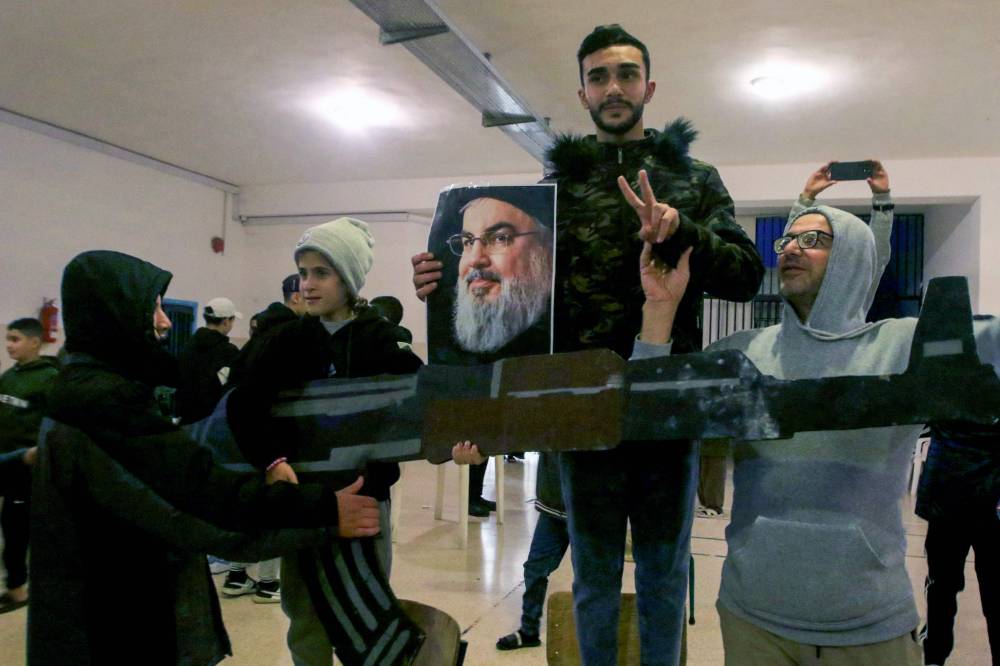Five key points on the Israel-Hezbollah ceasefire deal
The ceasefire is aimed at facilitating the peaceful withdrawal of Israeli troops from southern Lebanon over the next 60 days.

WASHINGTON - After two months of all-out confrontations between Israel and Iran-backed Lebanese militant group Hezbollah, a ceasefire deal brokered by the United States and France is meant to end the devastating conflict.
The ceasefire is aimed at facilitating the peaceful withdrawal of Israeli troops from southern Lebanon over the next 60 days, a senior US official with knowledge of the negotiations said.
When does the ceasefire begin?
The ceasefire will go into effect at 4am local time Wednesday in Israel and Lebanon (0200 GMT), at which point "all fire will stop from all parties," the US official, who spoke on condition of anonymity, told reporters.
What happens next?
Israeli forces will hold their positions, but "a 60-day period will start in which the Lebanese military and security forces will begin their deployment towards the south," the official said.
That will give them time to reach the Israeli positions, at which point Israel can begin a phased withdrawal without any vacuum forming that could see Hezbollah or others rush in, the official explained.
The withdrawal should take no longer than 60 days, the official said.
Hezbollah must also withdraw from the southern border with Israel and move further north up the Litani River -- something it has not done despite a UN Security Council resolution calling for it in 2006 (UN Resolution 1701).
"Hezbollah terrorist infrastructure in southern Lebanon will not be allowed to be rebuilt," emphasised US President Joe Biden in comments explaining the deal.
What if something goes wrong?
Biden said that the United States, with the support of France and other allies, would "provide the necessary assistance to make sure this deal is implemented fully and effectively."
However, that does not mean US boots on the ground, he said.
Instead, "if Hezbollah or anyone else breaks the deal and poses a direct threat to Israel, then Israel retains the right to self-defence consistent with international law," Biden stated.
The United States and France will join the tripartite mechanism created after the 2006 war between Israel and Hezbollah, bringing together the United Nations Interim Force in Lebanon (UNIFIL), Israel and Lebanon.
This mechanism, which going forward will be chaired by the United States, will be tasked with maintaining communication between the various parties and ensuring that whenever any violation is identified it is dealt with to avoid any escalation, the US official said.
A military committee involving the armies of "several other countries" will also provide additional support to the Lebanese army in terms of equipment, training and financial resources.
"We remain committed to be on the ground, day to day, watch what's happening and to let everybody know... that the world is watching," the official said.
What next for Lebanon?
Given that "Hezbollah is extremely weak at this moment, both militarily and politically," the ceasefire presents "the opportunity for Lebanon to reestablish its sovereignty over its territory," the US official said.
"Over the next 60 days, the Lebanese Army and the State Security Forces will deploy and take control of their own territory once again," Biden stated in his comments, calling it a "new start" for Lebanon.
What does the deal mean for Gaza?
The ceasefire in Lebanon could become "a stepping stone towards getting a ceasefire deal in Gaza and bringing the hostages home," the US official said.
In large part that will be because the Palestinian militant group Hamas -- which attacked Israel on October 7, 2023, prompting the invasion of Gaza -- will realise that "Hezbollah has decided to abandon them and delink the two conflicts," he said.
"There's no one coming for their support anymore. I think that's a powerful change of reality on the ground... If anyone in Hamas thought that there was broad support for their cause, I think today they have learned that that is not the case," the official said. - AFP














